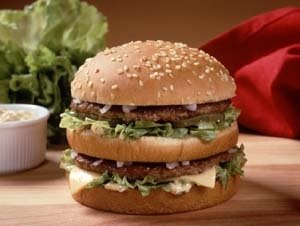Reporter
 A WORKER in Manila would have to work the second longest compared with other Asian counterparts just to buy one Big Mac at P85, according to the latest survey results released by the Union Bank of Switzerland (UBS).
A WORKER in Manila would have to work the second longest compared with other Asian counterparts just to buy one Big Mac at P85, according to the latest survey results released by the Union Bank of Switzerland (UBS).The 2006 UBS Prices and Earnings study showed that it would take 81 minutes for an average worker in Manila just to purchase a large McDonald’s hamburger sandwich. This is also way above the global average of 35 minutes.
“Wages only become meaningful in relation to prices, i.e., what can be bought with the money earned,” the study said. “A globally available product like a Big Mac can make the relationship between wages and prices much clearer.”
In other cities across Asia, however, it would take lesser time to buy one Big Mac.
In Tokyo, Taipei, Hong Kong and Singapore, it would take employees 10, 20, 17 and 22 minutes, respectively.
Although taking much longer minutes than the first four cities mentioned, it is still less difficult for workers in Kuala Lumpur, Beijing, Delhi, and Bangkok than those in Manila to avail themselves of the popular product of McDonald’s. Working for a Big Mac in these urban areas would take the corresponding 33, 44, 59, and 67 minutes.
The longer minutes required in Manila may be further understood upon the review of its other rankings in the same UBS survey. Although prices of goods in Manila are relatively cheap as indicated by its 67th rank out of the 70 cities surveyed, it placed 69th in both wages and domestic purchasing power.
At the regional level, the study indicated that the Great Divide may be the largest in Asia.
“In no other region is the price spread between the most expensive and the cheapest city greater than in Asia,” it said.
Tokyo pays the highest wages in Asia despite the decline of Japanese capital since the last UBS survey in 2003. Together with Taipei and Seoul, it also exhibits the highest level of purchasing power.
While Asia hosts Tokyo, which is fifth among the world’s most expensive cities, the region is also the location of others at the opposite end of the scale. These include Delhi, Mumbai and Kuala Lumpur.
Occupying the middle ground in terms of prices and wages are Singapore, Taipei, and two Pacific Rim cities such as Sydney and Auckland. The last two also made it to the world’s top ten in terms of strong purchasing power. (Originally published in the Business Mirror, Aug. 10, 2006)
No comments:
Post a Comment